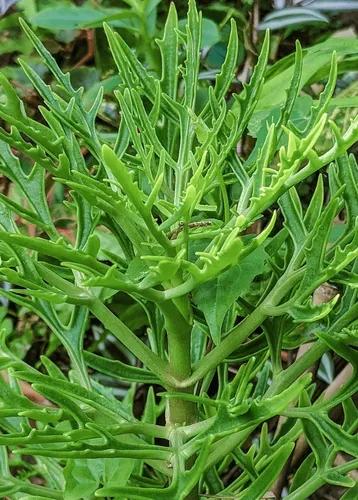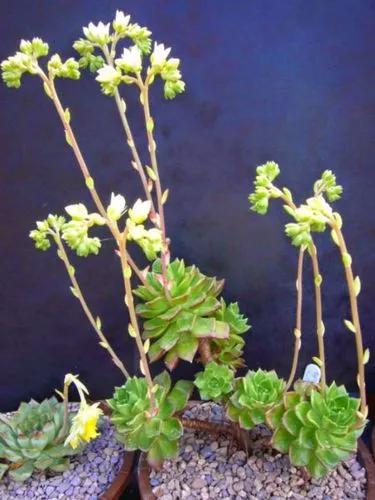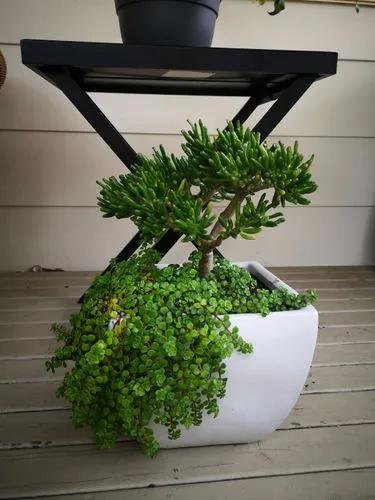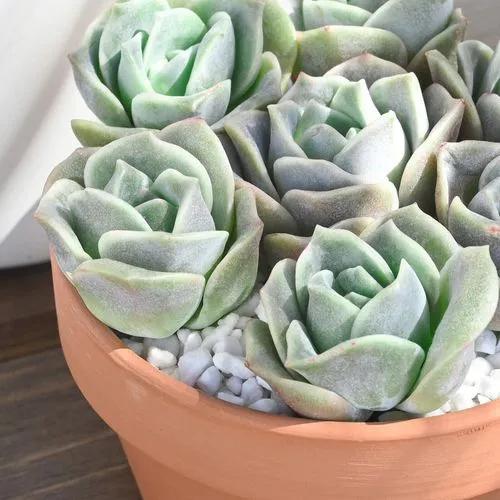Euphorbia canariensis, or the Canary Candelabra Spurge, is a prominent succulent in the Canary Islands. It thrives along coastal belts, clinging to dry lava formations, cliffs, and mountain slopes.
Canary Island Spurge Care
Euphorbia canariensis



Euphorbia canariensis features upright, 4-angled branches with short reddish spines, reaching up to 13.1 feet (4 meters) in height and forming captivating clumps with as many as 150 branches. The branches can be gray-green to deep green with occasional reddish or brownish hues. In spring, small reddish-green to dark red flowers appear near the spine axils, followed by maroon red capsules containing seeds.
How to Care for the Plant

Water

Regular pruning maintains shape and removes dead or damaged growth. Wear protective gear due to the sap's irritant properties.

Pruning

Regular pruning is an excellent practice to maintain the plant's shape and remove any dead or damaged growth. When conducting these tasks, be sure to protect yourself by wearing gloves and other appropriate safety gear due to the sap's irritant properties.

Fertilizer

Euphorbia canariensis thrives in warmth and can tolerate high summer temperatures. However, it becomes vulnerable to damage or even death in cold winter conditions. It exhibits remarkable resilience, enduring temperatures as low as 25°F (-3.9°C). This succulent thrives in USDA Plant Hardiness Zones 9b to 11b, within a temperature range of 25 to 50°F (-3.9 to 10°C).

Sunlight

As a sun-loving succulent, Euphorbia canariensis thrives in full sun or partial shade. To provide ideal conditions, place it where it can soak in at least 6 hours of sunlight each day. In regions with hot, intense midday sun, consider offering some protection during those peak hours.

Soil

Convolvulus arvensis favors well-draining, moderately fertile soil. It can adapt to various soil types but thrives in loamy or sandy soil. Ensure adequate drainage to avoid waterlogging.

Propagation

Propagating Euphorbia canariensis is possible through stem cuttings, especially during the spring or summer months when the plant is actively growing. Alternatively, you can attempt propagation from seeds, although this method can prove more challenging due to germination difficulties.

Temperature

Regular pruning maintains shape and removes dead or damaged growth. Wear protective gear due to the sap's irritant properties.

Container

This cactus-like succulent needs a wide and large pot to accommodate its growth, so don't go small.

Fun fact

Euphorbia canariensis is unique to the Canary Islands.

Popularity

368 people already have this plant 32 people have added this plant to their wishlists
Discover more plants with the list below
Popular articles






